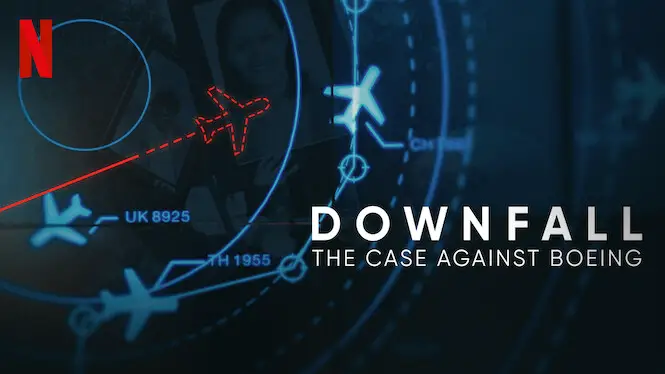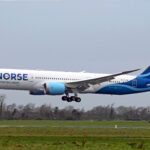«Downfall: The Case Against Boeing»: editor’s opinion
Perhaps we should start with an important spoiler alert: for us, the story had no spoilers. We have been dealing with the topic of the Boeing 737 MAX since its conception and the tragic sub-theme of its accidents since that terrible morning in October 2018.
The big issue that «Downfall: The Case Against Boeing» uncovers in an hour and a half, we have been unveiling it little by little for more than two years, precisely behind the investigations of Pasztor and Ostrower (interviewed in the documentary) to which we must add Tangel, Gates, Lemme, Hamilton and several others.
One should even add William Langewiesche, who in a September 2019 editorial turned the world against him with an opinion that unloads blame on – when not- on the crews. The old reliable way out of blaming the dead.
Downfall, the case against Boeing, crudely exposes how Boeing began to implode long before Lion Air 610 went down. It all starts in 1997 when the company buys – it’s better to say «merges,» but hey – McDonnell Douglas and with it a board of directors more concerned with share value than with the safety culture that made Boeing what it was.
Thus, Boeing went from being a model engineering company in which every last operator who tightened a nut had the chance to say «we have a problem» to a corporate monster that made shareholders happy because there were always dividends. Quality Departments began to be afraid to raise a stink because bad news was paid for with layoff telegrams.
The documentary by Rory Kennedy -same director of the excellent «Last Days in Vietnam»- explores, without resorting to easy tears, the catastrophe before the catastrophe: the accidents as a consequence of a company that gives in to its basest instincts. Simple and pure capitalism. Profit over safety. Cost over profit.
In that sense, Downfall is a rounded work that perfectly tells the story it wants to tell and does it well. It will allow the general public to quickly identify the villain, and watch out: it doesn’t lie when it finds him. Boeing is responsible for the crashes and deaths.
It is even more responsible for the second accident than the first because it could have taken action to suspend MAX operation for safety and did not. In Pasztor’s words, he gambled that he would finish producing and implementing the software fix before another plane went down. It didn’t come.
In my view, Downfall leaves out a couple of other responsible actors to focus on the fault of the principal. When he talks about the JT610 crash he omits the disastrous chain of maintenance errors that allowed that plane to fly.
Just two days earlier flight JT043 had experienced a similar failure, following four incidents of the angle of attack (AOA) sensor failure that had prompted the replacement of the device.
However, after several maintenance updates, it was not deemed necessary to further analyze or to change the Flight Control Computer and perform a test flight. It was declared airworthy and loaded with passengers to operate the JT610.
The documentary merely mentions the FAA and how it was relaxing its role as an aviation authority and regulatory body. Hence allowing Boeing to self-certify its products. There is a huge combination of technical and economic factors involved. But while the FAA is a victim of Boeing’s systematic concealment, it did enough to allow itself to be lied to.
The documentary rightly states that, beyond cultural differences or crew training, Boeing’s fatal mistake is to put pilots in front of a system they don’t know and expect them to react within an impossible time frame. The blame cannot be placed on those who were presented with a situation where survival depended on a miracle.
There is no doubt about Boeing’s responsibility for the two accidents and its complex present. It is no coincidence that all its programs have failures and challenges. No coincidence that the quality of its products is in question and that the quality controls it took upon itself to destroy are at the heart of the problem. Until the latest board changes, Boeing was an engineering company that did not have an engineer at the small table.
It remains to be seen whether these board changes, which reinstate technical staff, are part of a real effort to restore the manufacturer’s culture. Or whether they are merely an attempt at make-up, a bandage over the bleeding wound.
Downfall presents the problem to the public and, albeit incompletely. It shows that the culture of excellence in large corporations can be a way of doing things or a slogan that looks pretty. Perhaps the most important thing it failed to tell is that for Boeing, this downfall has only slowed down for the time being. To reverse it, many years of flawless operation of the 737 MAX are still to come.














